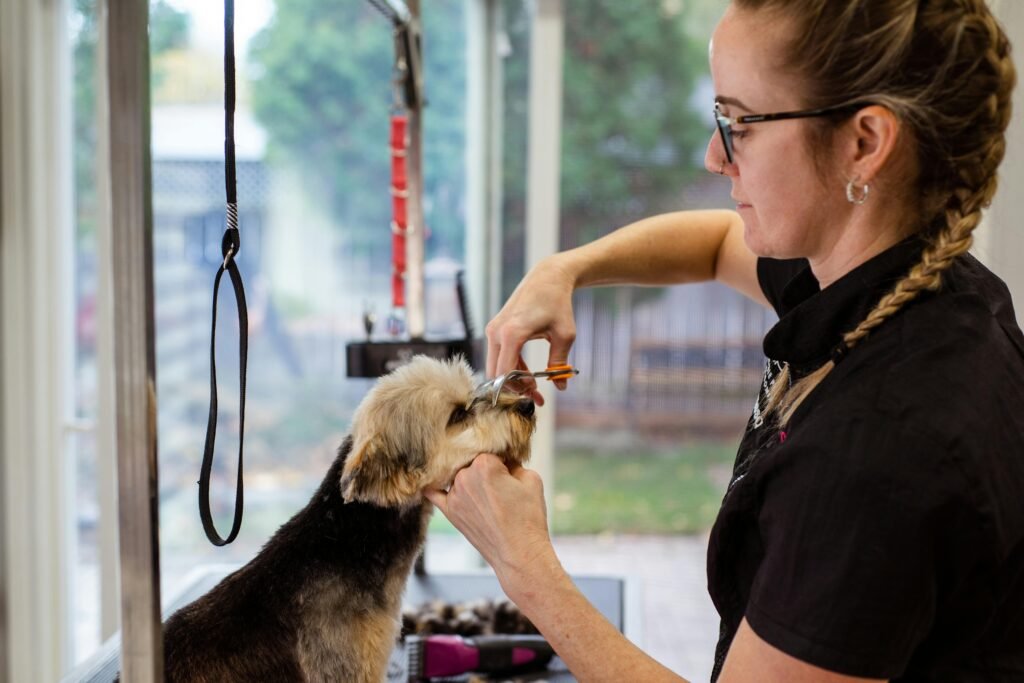As the temperatures drop and winter blankets the world in a chilly embrace, it’s not just us who feel the bite of the cold. Our furry friends can also experience changes in their nutritional needs during this frosty season. Just like humans bundle up to stay warm, pets require special attention when it comes to their diet and overall well-being.
Proper nutrition plays a pivotal role in keeping our pets healthy throughout winter. Ensuring they receive balanced meals helps them maintain energy levels, supports their immune system, and keeps those coats shiny and full of life. With some thoughtful adjustments to your pet’s food routine, you can help them thrive even as snowflakes dance outside your window.
Let’s dive into how you can optimize your winter pet nutrition strategy!
Understanding the Nutritional Needs of Pets in Cold Weather
As the temperature drops, pets face unique nutritional challenges. Their bodies often require more energy to maintain warmth. This is especially true for outdoor animals or those with shorter fur.
In cold weather, fats and proteins become essential components of a healthy pet diet. These nutrients not only provide energy but also support overall health and immunity. A balanced mix can help keep your furry friend active and warm.
Additionally, pets may need increased calories depending on their activity level during winter months. If they’re spending more time outdoors playing in the snow or bundling up for long walks, adjusting their food intake becomes crucial.
Keep an eye on your pet’s body condition as well. Weight loss might indicate insufficient nutrition during colder seasons, while obesity could arise from less exercise combined with unchanged feeding habits. Tailoring their diet to seasonal changes ensures they stay healthy and comfortable throughout winter.
Foods to Include in Your Pet’s Diet during Winter
When temperatures drop, it’s essential to adjust your pet’s diet. Focus on foods that provide warmth and energy.
Look for high-quality proteins. Lean meats like chicken or turkey help maintain muscle mass during the cold months. Fish is also a fantastic option, rich in omega-3 fatty acids that promote a healthy coat.
Incorporating whole grains can be beneficial too. Brown rice, quinoa, and oats offer sustained energy levels while being gentle on their digestive system.
Don’t forget about vegetables! Carrots and sweet potatoes are excellent choices packed with vitamins A and C. They support immune health during winter when pets may be more prone to illness.
Consider adding some healthy fats as well. Oils such as fish oil or flaxseed oil can enhance skin moisture and keep coats shiny throughout the season.
These thoughtful additions can ensure your furry friend stays nourished and warm all winter long.
Foods to Avoid Giving Your Pet in Cold Weather
When it comes to winter pet nutrition, not all foods are suitable for your furry friend. Certain items can be harmful or even toxic during colder months.
Avoid feeding pets leftovers that contain rich sauces or seasonings. These ingredients can upset their stomachs and lead to digestive issues.
Chocolate is another no-go. It’s known to be toxic year-round, but the cold weather might make you think it’s okay because your pet seems cozier indoors. Resist the urge to share holiday treats with your dogs or cats!
Be cautious with human food high in fat such as bacon or deli meats. While they may seem tempting, these fatty options can cause pancreatitis, especially when pets tend to eat less active during chilly days.
Keep an eye on snacks like grapes and raisins—these should never enter a pet’s diet regardless of the season! Always choose safety over convenience when considering winter feeding tips.
Tips for Encouraging Your Pet to Eat During Winter Months
Winter can make pets less enthusiastic about their meals. Their natural instincts may lead them to conserve energy, resulting in decreased appetite.
To encourage your furry friend to eat, try warming up their food slightly. This enhances aroma and makes it more appealing. A dash of low-sodium broth can also entice picky eaters.
Consider feeding smaller portions throughout the day rather than one large meal. Frequent offerings keep their interest piqued and help maintain energy levels during the chilly months.
Adding wet food or toppers can provide variety and moisture to dry kibble, making mealtime more enticing.
Create a cozy eating environment free from distractions. A calm space helps them focus on enjoying their food instead of getting sidetracked by winter wildlife outside the window or chilly drafts inside your home.
Hydration and Water Intake
Hydration is crucial for your pet’s well-being, especially in winter. Despite the cold, pets still need a consistent water supply to stay healthy.
Dry indoor air and heated spaces can contribute to dehydration. Cats and dogs often drink less when it’s chilly outside, so it’s essential to monitor their water intake closely.
You might consider adding wet food or broth to their meals. This not only increases hydration but also adds flavor and variety.
Keep fresh water available at all times. Change it regularly to ensure it’s inviting. A clean bowl encourages more frequent drinking as pets tend to avoid stale or dirty water.
If you notice signs of dehydration—like lethargy or dry gums—promptly consult your veterinarian for guidance on maintaining proper hydration levels during colder months.
Supplements and Vitamins for Maintaining a Healthy Coat and Immune System
Supplements can play a crucial role in maintaining your pet’s health, especially during cold weather. A shiny coat is often a reflection of overall well-being. Omega-3 fatty acids, commonly found in fish oil, are excellent for enhancing coat quality and promoting skin health.
Vitamins such as E and A also contribute significantly to your pet’s immune system. Vitamin E acts as an antioxidant, helping to fight off illnesses while supporting cellular function.
Probiotics are another great addition. They aid digestion and strengthen gut health, ensuring that your furry friend absorbs all the nutrients effectively.
Always consult with your veterinarian before introducing new supplements to ensure they align with your pet’s specific needs. Tailoring these additions based on individual dietary requirements can lead to happier and healthier pets throughout the winter months.
Exercise and Activity for Pets in Cold Weather
Keeping your pet active during the cold months is essential for their overall health and well-being. While outdoor playtime may be limited due to frigid temperatures, there are plenty of creative ways to ensure your furry friend stays engaged and physically fit.
Indoor games can provide great mental stimulation. Consider playing fetch in a spacious area or setting up an obstacle course using household items. These activities not only promote physical exercise but also strengthen the bond between you and your pet.
If venturing outside, be mindful of how long they spend in the chilly air. Short walks are ideal, just make sure to monitor for signs of discomfort or cold-related issues like paw sensitivity on icy surfaces. Dog jackets or booties can help protect against harsh conditions while allowing them some outdoor time.
It’s also beneficial to incorporate structured playdates with other pets if possible. This interaction keeps them socialized and encourages more vigorous activity compared to solo play sessions.
Maintaining regular exercise routines throughout winter will contribute significantly to balanced winter pet nutrition as well as their mood stability during these colder months. Your commitment will reward both you and your four-legged companion with a happy, healthy season ahead!

